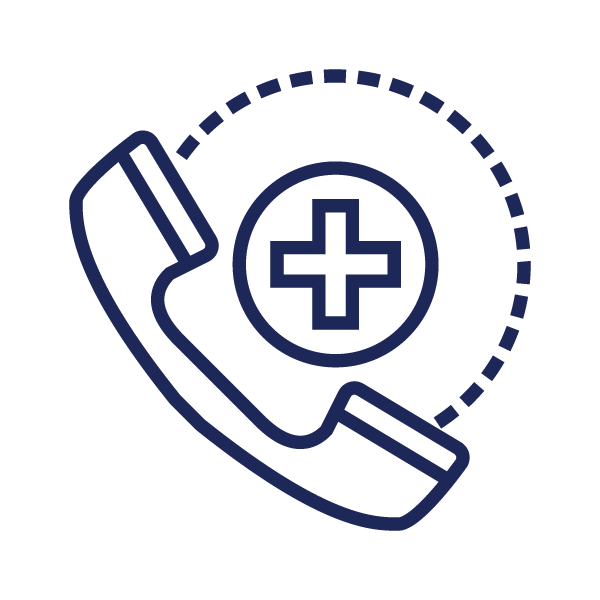Neurology
Neurology is the branch of medicine that deals with the diagnosis, treatment, and prevention of disorders related to the brain, spinal cord, nerves, and muscles. It is a highly specialized field that requires deep knowledge and expertise in understanding the intricate functions of the nervous system.
Neurologists, the specialists in this field, are trained to manage a wide range of conditions that affect the nervous system, such as strokes, epilepsy, Alzheimer’s disease, Parkinson’s disease, multiple sclerosis, and various neuromuscular disorders.
The nervous system is a complex network of neurons that allows the body to communicate with itself, enabling movement, thought processes, sensory input, and autonomic functions like breathing and heartbeat. When something goes wrong within this system, it can have profound effects on a person’s health and quality of life. Neurology plays a crucial role in identifying and treating these conditions.
In this article, we will explore the field of neurology, its importance, common neurological disorders, the role of a neurologist, and the availability and cost of neurology services in Narela.
Contact for More Details:-
- Phone:- +91 9266610335
- Email:- draditiyaaggarwal@gmail.com
- Contact:- https://dradityaaggarwal.com/contact-us/
What is Neurology?
Neurology is a branch of medicine that focuses on the diagnosis, treatment, and management of disorders related to the nervous system, which includes the brain, spinal cord, nerves, and muscles. Neurologists are specialists who treat conditions that affect the nervous system, ranging from common issues like headaches and migraines to more complex diseases such as epilepsy, stroke, Parkinson’s disease, multiple sclerosis, and Alzheimer’s disease.
Neurology encompasses a broad range of conditions, including:
Neurological Disorders: Conditions like Parkinson’s disease, Alzheimer’s, and epilepsy.
Stroke Management: Diagnosis and recovery from strokes.
Pain Management: Chronic pain related to nerves, such as neuropathy.
Seizure Disorders: Diagnosing and treating epilepsy.
Headaches & Migraines: Identifying and managing different types of headaches.
Neurologists often use advanced diagnostic tools such as MRI, CT scans, EEG, and lumbar punctures to help assess and treat neurological conditions.
The Importance of Neurology
The human nervous system is one of the most sophisticated and vital systems of the body. It governs virtually every aspect of human activity, from voluntary movements like walking and talking to involuntary functions such as heartbeats, digestion, and reflex actions. Neurology is therefore an essential discipline, helping to maintain the proper functioning of this system. Without proper neurological care, people can experience debilitating conditions that significantly impact their lives.
Neurologists diagnose, manage, and treat a variety of neurological disorders, ranging from common ailments like headaches and migraines to more serious conditions such as epilepsy, brain tumors, and multiple sclerosis. They work closely with other medical professionals such as neurosurgeons, psychiatrists, and physiotherapists to provide comprehensive care for patients.
Neurology also plays a pivotal role in the prevention of neurological conditions. Early detection and treatment can help prevent conditions like stroke, dementia, and other progressive neurological disorders from worsening and significantly impairing a person’s quality of life.
Common Neurological Disorders
There are numerous neurological disorders that affect people worldwide. Some of the most common conditions that neurologists treat include:
1. Stroke
A stroke occurs when there is a disruption in the blood supply to the brain, either due to a blockage (ischemic stroke) or a rupture of a blood vessel (hemorrhagic stroke). This results in the death of brain cells, leading to loss of function in the affected area of the brain. Stroke is a medical emergency, and immediate treatment is crucial to minimize damage and improve recovery outcomes.
2. Epilepsy
Epilepsy is a neurological disorder characterized by recurrent seizures. Seizures are caused by abnormal electrical activity in the brain, leading to convulsions or temporary loss of consciousness. Neurologists use various diagnostic techniques, including EEG (electroencephalography), to diagnose epilepsy and determine the best treatment approach.
3. Parkinson’s Disease
Parkinson’s disease is a progressive neurodegenerative disorder that affects movement control. It is caused by the loss of dopamine-producing neurons in the brain. Symptoms include tremors, rigidity, bradykinesia (slowness of movement), and postural instability. Treatment may involve medication, therapy, and sometimes surgery.
4. Multiple Sclerosis (MS)
Multiple sclerosis is an autoimmune disorder that affects the central nervous system (CNS). It occurs when the immune system attacks the protective sheath (myelin) around nerve fibers, leading to communication problems between the brain and the rest of the body. Symptoms vary widely and can include muscle weakness, numbness, vision problems, and coordination issues.
5. Alzheimer’s Disease and Dementia
Alzheimer’s disease is the most common form of dementia, a condition characterized by a decline in cognitive abilities such as memory, reasoning, and language. Alzheimer’s primarily affects older adults and is caused by abnormal protein deposits in the brain that lead to nerve cell death. Although there is no cure, treatment can help slow the progression of symptoms.
6. Headaches and Migraines
Headaches are one of the most common neurological conditions. They can range from mild tension headaches to severe migraines. Migraines are often accompanied by other symptoms such as nausea, sensitivity to light and sound, and visual disturbances. Neurologists play an essential role in diagnosing and managing chronic headaches and migraines.
7. Neuropathy
Neuropathy refers to damage to the peripheral nerves, leading to symptoms such as numbness, tingling, burning sensations, and muscle weakness. Diabetic neuropathy is one of the most common forms of neuropathy, caused by prolonged high blood sugar levels. However, neuropathy can also result from trauma, infections, and other medical conditions.
8. Muscle Disorders
Neurologists also treat various disorders affecting the muscles, including conditions like myasthenia gravis and muscular dystrophy. These conditions can cause muscle weakness, difficulty in movement, and in some cases, respiratory failure.

The Role of a Neurologist
Neurologists are highly trained doctors who specialize in diagnosing and treating conditions of the nervous system. They conduct a thorough evaluation of a patient’s medical history, symptoms, and perform various tests to identify the root cause of neurological problems.
Some of the key responsibilities of a neurologist include:
Diagnosis: Neurologists use advanced diagnostic tools, including imaging tests (MRI, CT scans), blood tests, and neurological examinations to identify neurological disorders.
Treatment: Depending on the condition, treatment may involve medications, lifestyle changes, therapy, and sometimes surgical interventions. Neurologists often work with other healthcare professionals like physical therapists and speech therapists to provide a holistic treatment approach.
Management of Chronic Conditions: Many neurological disorders, such as multiple sclerosis, Parkinson’s disease, and epilepsy, require long-term management. Neurologists work closely with patients to monitor their condition, adjust treatments, and help manage symptoms effectively.
Preventive Care: Early intervention can help prevent the worsening of neurological conditions. Neurologists educate patients on lifestyle changes, medication adherence, and preventive measures to reduce the risk of conditions like stroke and dementia.
Neurology Cost in Narela
One of the primary concerns for patients seeking specialized treatment is the cost of medical services. The cost of neurology treatment can vary depending on several factors, including the complexity of the condition, the type of treatment required, and the healthcare facility.
In Narela, the cost of neurology consultations and treatments is generally more affordable compared to major metropolitan areas. However, the cost may still vary based on the clinic or hospital you visit, the neurologist’s expertise, and the specific treatment plan recommended. For instance:
Consultation Fees: A standard consultation with a neurologist in Narela may cost anywhere between INR 500 to INR 1500, depending on the experience and qualifications of the doctor. This fee typically covers an initial examination and discussion of symptoms.
Diagnostic Tests: Depending on the condition, various diagnostic tests such as MRI, CT scans, EEG, and blood tests may be recommended. The cost of these tests can range from INR 1000 to INR 10,000 or more, depending on the complexity of the procedure.
Treatment Costs: For conditions requiring long-term management, such as epilepsy or Parkinson’s disease, the cost of medications and follow-up visits can accumulate over time. The cost of medications may vary, with generic medications being more affordable than branded ones.
Hospitalization and Surgery: In cases where surgery or hospitalization is required (for instance, in the case of brain tumors or severe strokes), the cost can significantly rise. Hospital stays and surgeries can range from INR 20,000 to INR 2,00,000 or more, depending on the complexity of the case.
Despite the cost, it’s important to prioritize quality care for neurological conditions, as early diagnosis and treatment can prevent long-term complications. Many hospitals in Narela offer payment plans and insurance options to make healthcare more affordable for patients.

How Can I Choose Best Neurology Centre in Narela?
Choosing the best Neurology Centre in Narela is a crucial decision to ensure you receive the best care for neurological conditions. Here are some key factors to help you make an informed choice:
1. Qualified and Experienced Neurologists
Look for a neurology center with well-qualified and experienced neurologists. Check the credentials, experience, and specialization of the doctors, as expertise in the specific neurological condition you’re dealing with is important.
2. Range of Services Offered
Ensure the center offers a wide range of neurological services, such as diagnosis, treatment, and rehabilitation for conditions like strokes, epilepsy, migraines, Parkinson’s disease, and other disorders.
3. Advanced Diagnostic Facilities
Choose a center that uses modern diagnostic tools like MRI, CT scans, EEG, and other advanced equipment for accurate diagnosis.
4. Patient Reviews and Testimonials
Reading patient reviews and testimonials can provide insights into the quality of care, patient satisfaction, and the overall experience at the center.
5. Reputation and Accreditations
Research the center’s reputation within the community and ensure they have necessary certifications and accreditations from medical boards or health organizations.
6. Personalized Care
A good neurology center should offer personalized care and take time to understand your medical history and current condition. The approach should be patient-centric.
7. Accessibility and Location
Consider the location of the neurology center. A nearby clinic with easy access can be a significant convenience, especially for ongoing treatments.
8. Cost of Treatment
Make sure the center’s pricing aligns with your budget. Some centers offer transparent pricing, and it’s important to inquire about consultation fees, diagnostic costs, and potential treatment charges upfront.
9. Emergency Care and Follow-Up Support
Neurological issues can sometimes require emergency attention or consistent follow-up care. Check if the center provides emergency services or offers reliable follow-up support.
10. Consultation Availability
Check for the availability of consultations and whether you can get timely appointments, especially if your neurological condition requires immediate attention.
By considering these factors, you can choose a Neurology Centre in Narela that offers the best care and treatment tailored to your needs.
Conclusion
Neurology is a vital field of medicine that plays an essential role in maintaining the health of the nervous system. From common conditions like headaches to complex neurological diseases like Alzheimer’s and Parkinson’s, neurologists help patients manage and overcome these challenges.
For residents of Narela, access to specialized neurological care has become more convenient, with numerous options available for diagnosis and treatment. If you’re seeking expert neurology services in Narela, it’s important to find a reputable neurologist who can provide personalized care.
Additionally, while the cost of neurology services in Narela is generally affordable compared to larger cities, it’s essential to consider the full range of services required to manage a neurological condition. Whether it’s consultation, diagnostic tests, or long-term treatment, being well-informed about the costs and options can help make the process smoother.
By seeking timely neurological care, you can ensure better management of neurological disorders, improving your overall well-being and quality of life.
Frequently Asked Questions (FAQs)
Q1. What conditions do neurologists treat?
Ans: Neurologists treat conditions like stroke, epilepsy, Parkinson’s disease, multiple sclerosis, Alzheimer’s disease, migraines, neuropathy, and other disorders affecting the brain, spinal cord, and nerves.
Q2. How do I know if I need to see a neurologist?
Ans: You should see a neurologist if you experience severe headaches, seizures, numbness or weakness, balance issues, or memory problems.
Q3. What tests do neurologists use to diagnose conditions?
Ans: Neurologists use MRI, CT scans, EEG, and nerve conduction studies to diagnose neurological disorders.
Q4. How much does a neurology consultation cost in Narela?
Ans: A neurology consultation in Narela generally costs between INR 500 to INR 1500, depending on the doctor and clinic.
Q5. What is the treatment for migraines?
Ans: Treatment for migraines typically includes medications, lifestyle changes, and sometimes preventive treatments like Botox or nerve blocks.
Q6. Are there emergency services available at neurology centers in Narela?
Ans: Yes, many neurology centers in Narela are affiliated with hospitals that provide 24/7 emergency services, especially for critical conditions like strokes or seizures.
Q7. How long does treatment for neurological disorders take?
Ans: The duration of treatment depends on the specific condition, ranging from short-term medication for conditions like migraines to long-term management for chronic conditions like Parkinson’s disease.
Q8. Can neurological conditions be prevented?
Ans: While some conditions cannot be fully prevented, maintaining a healthy lifestyle (balanced diet, regular exercise, no smoking) can reduce the risk of certain neurological diseases like stroke and dementia.
Q9. What should I expect during a consultation with a neurologist?
Ans: During a consultation, the neurologist will review your medical history, perform a neurological exam, and may recommend tests like an MRI or EEG to assess your condition.
Q10. Do I need a referral to see a neurologist in Narela?
Ans: No, you generally don’t need a referral to see a neurologist in Narela, but if you have health insurance, it’s a good idea to check if a referral is required.
Want to consult about health? contact us
Get in Touch
They are Donec mollis dictum sagittis. In tincidunt egestas tellus quis ultrices. Nunc id rhoncus tortor, at feugiat mi.

Emergency Contact
- Free Call 24/7
- +91-9266610335

Hospital Location
- Open In 24 Hours
- Plot No.4, Pocket -7 Sec A-10, Narela, Opp. SRHC Hospital, Delhi -40

Phone Contact
- Within Working Hours
- 123-234-1234


